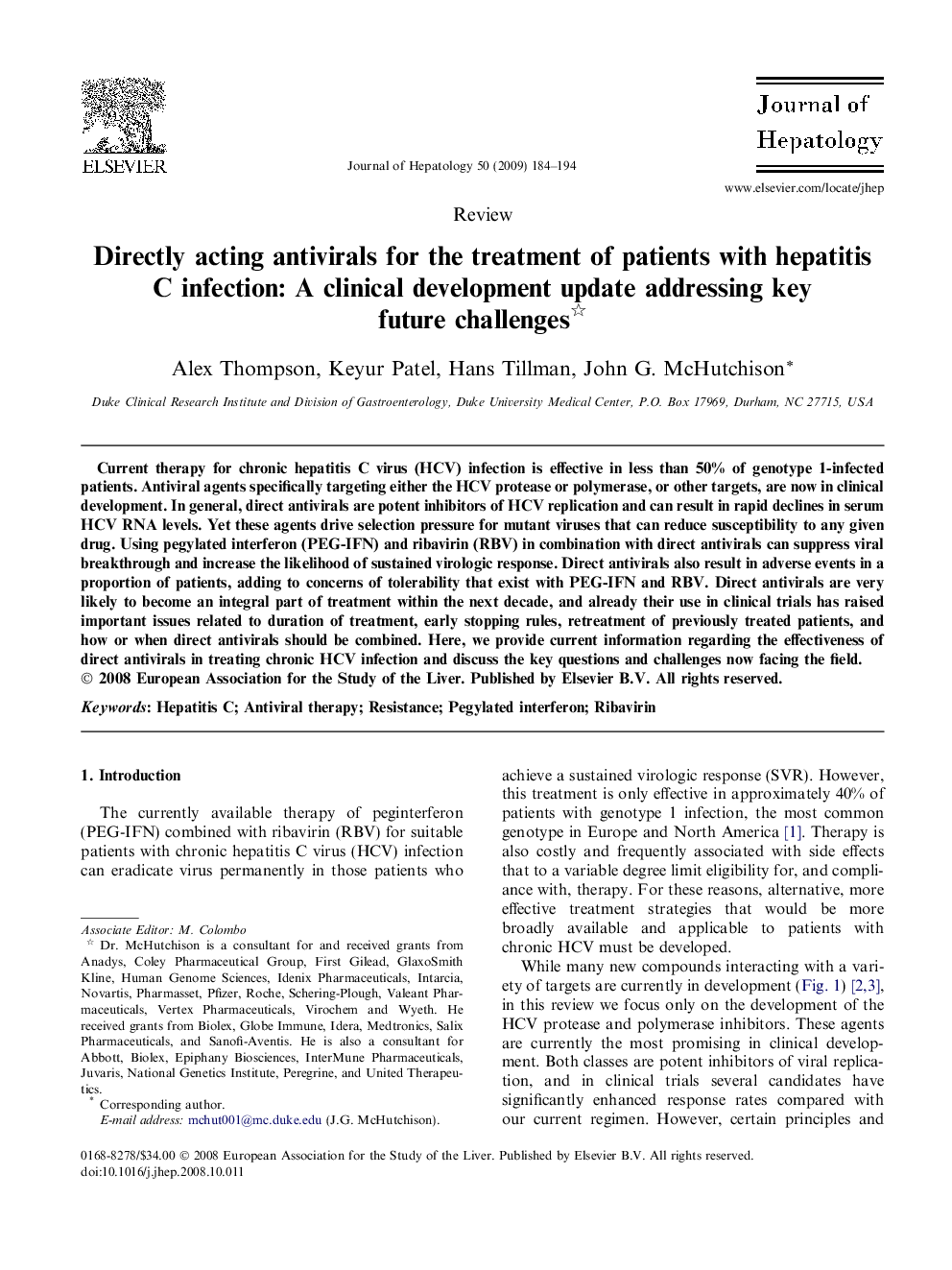| Article ID | Journal | Published Year | Pages | File Type |
|---|---|---|---|---|
| 6108853 | Journal of Hepatology | 2009 | 11 Pages |
Current therapy for chronic hepatitis C virus (HCV) infection is effective in less than 50% of genotype 1-infected patients. Antiviral agents specifically targeting either the HCV protease or polymerase, or other targets, are now in clinical development. In general, direct antivirals are potent inhibitors of HCV replication and can result in rapid declines in serum HCV RNA levels. Yet these agents drive selection pressure for mutant viruses that can reduce susceptibility to any given drug. Using pegylated interferon (PEG-IFN) and ribavirin (RBV) in combination with direct antivirals can suppress viral breakthrough and increase the likelihood of sustained virologic response. Direct antivirals also result in adverse events in a proportion of patients, adding to concerns of tolerability that exist with PEG-IFN and RBV. Direct antivirals are very likely to become an integral part of treatment within the next decade, and already their use in clinical trials has raised important issues related to duration of treatment, early stopping rules, retreatment of previously treated patients, and how or when direct antivirals should be combined. Here, we provide current information regarding the effectiveness of direct antivirals in treating chronic HCV infection and discuss the key questions and challenges now facing the field.
